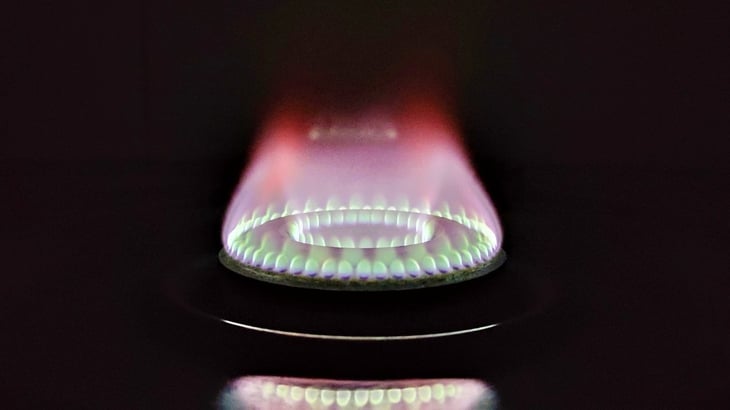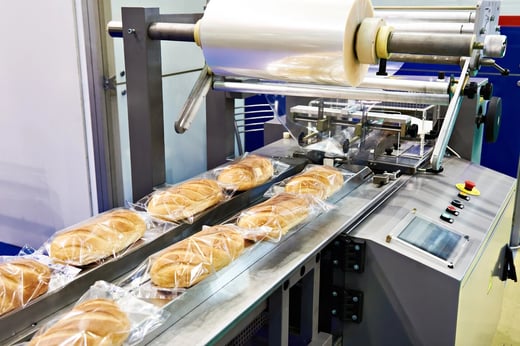
Industrial baking electrification - feasibility study for Burton's Foods
Our client wished to investigate the feasibility of electrification of its gas-fired industrial baking ovens used for biscuits and other products to help cut carbon emissions.
Industrial baking in the UK predominantly uses natural gas-fired ovens to produce products with the flavour, texture and appearance that consumers enjoy at an acceptable price.
Electrification is believed to be the most likely route to decarbonisation, given the UK's commitment to a zero-carbon electricity supply by 2035 and uncertainty over the availability, cost and timing of green hydrogen.

Burton's Foods Limited (Burton’s) took part in the UK government’s BEIS industrial fuel switching phase 1 competition, investigating the feasibility of moving from conventional gas-fired ovens to electric.
Burton’s has baked biscuits in the UK since 1935 giving them vast experience and expertise spanning across a wide range of sweet and savoury biscuit types, as well as a full operational production facility that could be used to characterise an oven.
As part of this project, 42T were able to support the Burton's team across the feasibility study, providing technical expertise in all aspects of testing, energy-loss modelling, analysis and solution research and recommendation.
Aims of the study
The purpose and aims of the feasibility study were to characterise the current oven and capture the requirements for a technically- and commercially-viable electric alternative. The results of this were compared with current offerings that were commercially available to assess the gap and to establish a route forward to creating an oven that would meet all the requirements.
To meet the technical feasibility requirements, the electric alternative needed to be able to produce products of the same quality as a gas oven. The study characterised the thermal and humidity profile of an industrial baking line to establish the baking conditions that would need to be emulated.

For the commercial viability, the energy use and the relative fuel cost were the key factors. Mapping the energy losses of the current industrial line determined the areas where efficiency savings were available.
This investigation showed that all areas where savings could be made would need to be capitalised on, due to the higher cost per unit of energy of electricity compared to gas.
Results
These results were discussed with leading electric oven manufacturers to determine if there were any products on the market that could meet some or all of these requirements, both technically and commercially.

The study concluded that there are electric ovens commercially available that can replicate the quality of products produced on a gas-fired oven. However, the current electric offerings would not be cost competitive with the incumbent technology as the efficiency improvements currently available do not make up for the price difference in fuels.
The study highlighted areas where the efficiency savings required could be made, such as reduced conduction losses in addition to a heat recovery system.
The feasibility study also provided a process by which other ovens could be assessed and reconfigured using electrical heating technologies. The energy efficiency suggestions for the baking oven could be applied to similar types of product heating or drying applications such as curing and drying of ceramics, composites and papers.
The methodology developed in the study could be adapted to other related applications to enable emissions reduction in those sectors. This would potentially unlock large carbon savings from the cumulative effect of the fuel-switching of multiple production lines and facilities, if the benefits can be validated in a cost competitive solution.
Project achievements
- The feasibility of current electric oven offerings was assessed
- A series of recommendations that have the potential to make electric ovens commercially viable was devised
- A process for characterising ovens to confirm if a fuel-switch is viable was established
Read full news story here
If you would like to find out more, contact Director of Food & Beverage, Stuart Gilby:
answers@42T.com | +44 (0)1480 302700 | Stuart Gilby | LinkedIn
Related Articles

Consumer, Personal Care
Resolving dispense failure in a personal care product

Healthcare & Life Sciences, Sustainability
Cutting single-use plastic waste from a medical product

Consumer, Manufacturing & Automation
Solving heat-sealing challenges around new sustainable packaging materials

What will you ask us today?
We believe in asking the right questions to drive innovation; when we know the right questions, we generate the ideas to answer them.

